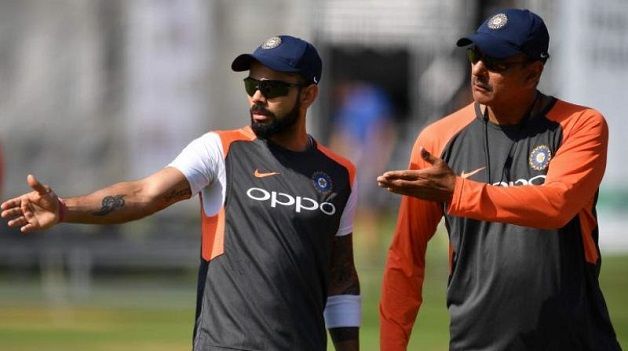
Cricket Country Staff
Editorial team of CricketCountry.
Written by Cricket Country Staff
Published: Dec 20, 2018, 10:57 AM (IST)
Edited: Dec 20, 2018, 10:57 AM (IST)


In their quest to become the first Indian side to win a series Down Under, Virat Kohli and Co. found themselves on the backfoot as the Australian bowling attack ratted the Indian batsmen to clinch a series-levelling victory in Perth.
It is in these times – when the players are down and out – that the role of the skipper and coach becomes paramount to boost the morale of the side, according to former India batsman VVS Laxman.
“The role of the leadership group and the team management is very crucial because when the chips are down and one is going through a low phase, it becomes mandatory that the leadership group ensures there is team bonding and keep motivating and ensuring that each and every player is in the right mental space,” Laxman was quoted as saying by the Indian Express on Thursday.
“When the team is also going through a lean patch, it is the responsibility of the leadership group to ensure each and every player in the team is made to feel wanted and knows that they are good enough (to be playing at the highest level).”
Citing examples from his own career on how cricketers can self-doubt themselves, Laxman, who was dropped from the 2003 World Cup – a dark phase in his life – said such instances can push the player on the brink of depression, irrespective on how mentally tough they are.
“The lowest and toughest period (for me) was the 2003 World Cup exclusion. I was in New Zealand and not part of the Indian World Cup team. I had requested the team management to send me back to India because Dinesh Mongia, who replaced me in the World Cup squad, was part of the New Zealand tour also after the team was announced.
“I was not going to play any matches, I was not part of any practice session, I was not going to get any batting in the practice, because the guys going to play the matches were going to bat. I played the first two ODIs (three) and after the second ODI, the team was announced and Dinesh joined from the fourth ODI. It was really tough for me knowing that I was not part of the World Cup, which I thought I deserved,” he said.
Such instances, the 44-year-old Laxman said, can push the cricketer on the brink of depression, regardless of how mentally tough he is.
“As a sportsperson, especially an Indian sportsperson, we don’t want to use the term depression, but along the way there will be instances where you are depressed but you don’t want to accept that because as a sportsperson, you feel you have the mental strength to overcome the challenges,” he said.
ALSO READ: I don’t like Virat Kohli’s attitude at the moment: Michael Hussey
“So, I think the role of the support system is very important whenever you are experiencing the lows. Because I have seen a lot of cricketers when they experience the lows and they don’t have the support system, their life can be miserable.”
He admitted that he made repeated pleas to allow him to join the tournament midway, but his requests fell on deaf years.
“I experienced a lot of lows, I wouldn’t term it was depression because I never registered the term depression. But I have experienced a lot of frustration. In these phases you go through lot of negative emotions, but if passion can be your profession, nothing like it.”
In fact, he never questioned the team management about his axe from the World Cup squad, a decision now he probably may regret.
ALSO READ: Virat Kohli over the top, but in a good way: Allan Border
“I never ever asked captain or coach (why I was dropped) but I think it is very important to know the reason why you are not there in the team. My parents had told me never to ask and ‘if the team requires you they will make you play, if the team does not want you they will not make you pay’. But in reality, it does not work like that. Now I feel I should have asked,” Laxman quipped.
This website uses cookies so that we can provide you with the best user experience possible. Cookie information is stored in your browser and performs functions such as recognising you when you return to our website and helping our team to understand which sections of the website you find most interesting and useful.
Strictly Necessary Cookie should be enabled at all times so that we can save your preferences for cookie settings.
If you disable this cookie, we will not be able to save your preferences. This means that every time you visit this website you will need to enable or disable cookies again.
